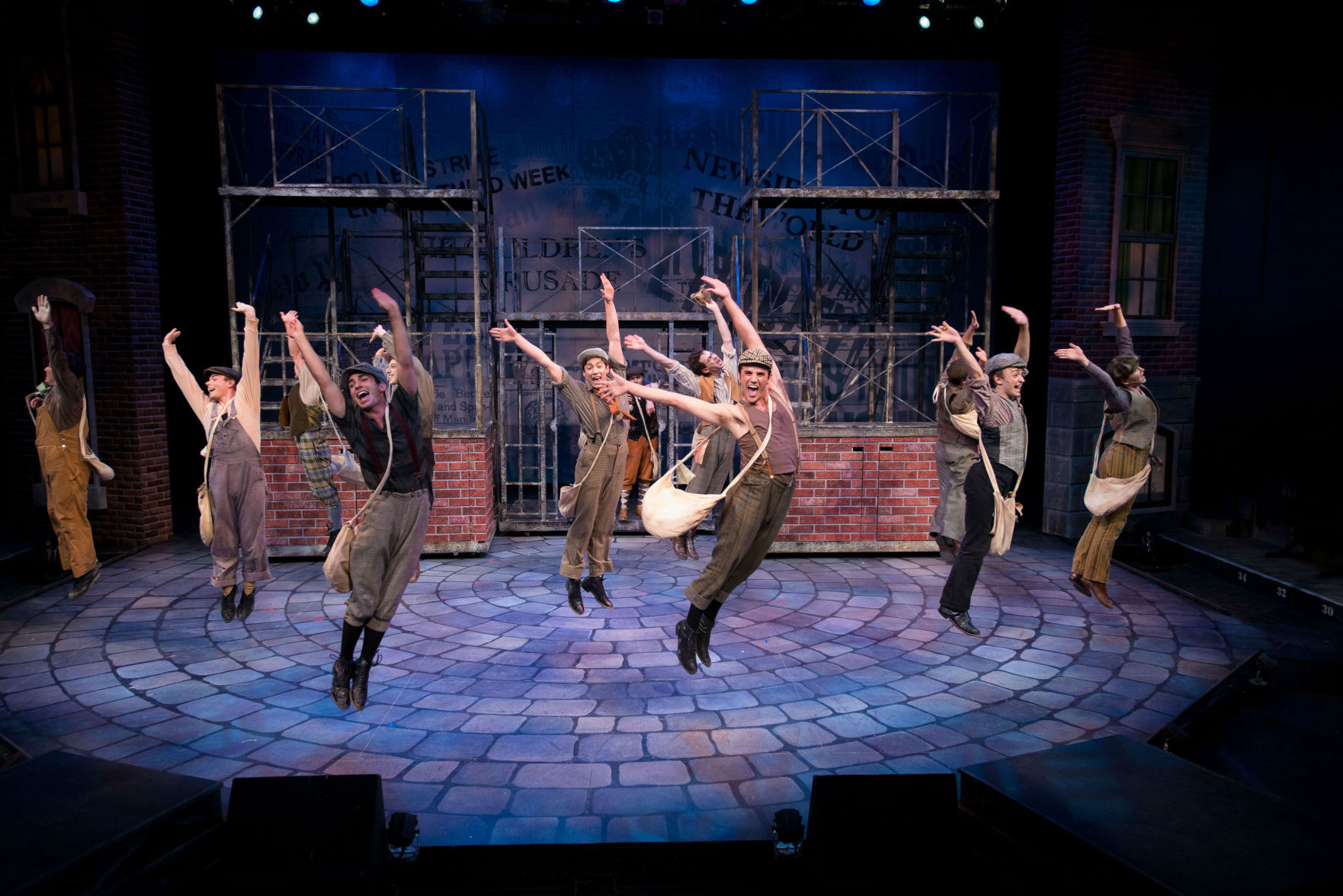Two thumbs up and 5-stars for Dobama’s ‘The Flick’
By Bob Abelman
Annie Baker’s long, leisurely and 2014 Pulitzer Prize-winning Off-Broadway ode to small, solitary lives is given the splendid treatment it deserves and we have come to expect from Dobama Theatre.
“The Flick” features three emotionally stinted, socially awkward and deeply lonely co-workers at one of the last remaining, independent movie theaters in Worchester County, Mass., to house a 35-millimeter projector. And its seemingly simple story is as sweet and sorrowful as it is masterfully constructed, clandestinely complex and beautifully penned.
Baker is a favorite of Dobama’s. You may remember “The Aliens,” which was performed at the Cleveland Heights theater in 2014 and featured the drug-addled ramblings of a pair of 30-something slackers. They offered terse reflections on the human condition that trailed off into unfinished thoughts, elongated sighs, and slow drags on cigarettes.
In the place of the dramatic arc typically found in theatrical storytelling were a series of subtle, fairly uneventful yet intriguing moments that were buffered by pauses that stretched to epic proportions.
What surfaced from Baker’s deliberate and disarming display of human wreckage was insight into the people we randomly encounter with eyes wide shut and exposure to the delicate albeit discordant rhythms of their street poetry.
The same goes for “The Flick.” Here, we observe the evolving friendship between veteran floor-mopper Sam, newbie employee Avery, and the projectionist Rose as they carry out their repetitive, brain-dead and soul-crushing manual labor for $8.50 an hour.
“The Aliens’” discordant rhythms of speech are replaced here by a wonderfully annoying regional accent that manages to belie the intelligence of the speaker (think Matt Damon in the film “Good Will Hunting,” who starred with Robert De Niro in “The Good Shepherd,” who starred with Kevin Bacon in “Sleepers”), even when Sam and Avery are playing a rousing round of “Six Degrees of Kevin Bacon.”
And the excruciating pauses found in “The Alien” are exchanged for silent moments of mopping in the empty movie house – which is accurately rendered by scenic designer Jill Davis – between screenings.
Each of the eight scenes in Act I and the eight scenes in Act II begins with the house lights dimming, blinding undecipherable images beaming from the film projector booth at the back of the movie theater, the sound of a generic movie soundtrack drawing to a close, and the house lights flickering to life as the screening comes to an end.
The play – with its existential insights into the human condition, its silent moments of mopping, its screening segues and its rounds of “Six Degrees of Kevin Bacon” – clocks in at just over three hours.
Yes, Baker requires that the audience have skin in the game and ante-up patience and perseverance in order to be rewarded for her efforts. And rewarded you will be.
In addition to Baker providing an intriguing play, director Nathan Motta has found an exceptional group of actors to deliver it. Every one of them fits their respective character like a glove and, most remarkably, manages to manifest their character’s defining frailty in their physicality.
The 35-year-old Sam is stuck in a loop of living with his parents, working a dead-end job and secretly adoring Rose. And just as he has never learned how to operate the movie projector, he is incapable of changing the reels and moving forward in his own life.
As Sam, the incredible Christopher Bohan wears his character’s insecurities and lifetime of disappointment on his sleeve, in his shoulders and around his hips, and his ungainly lurch reveals just how uncomfortable Sam is in his own skin.
Twenty-something Rose is a bit of a free-spirit who uses her sexuality to compensate for her pathological self-doubt. This is best seen when she tries to seduce Avery with a wildly improvised and highly cathartic dance, while all that the inexperienced, deeply depressed and spiritually-broken Avery wants to do is escape into a movie.
Actress Paige Klopfenstein does not allow Rose’s physical displays of bravado to mask the character’s humanity. In fact, she does a remarkable job of always keeping it just below the surface of her performance. And Gordon Hinchen’s Avery – a walking, talking composite of phobias, self-consciousness and film-nerd eccentricities – is delightful.
During “The Flick,” Sam notes that “people always freak out when like, you know, when art forms move forward.” He was talking about motion pictures but he just as easily could have been talking about the long, leisurely, Pulitzer
Prize-winning play in which he resides.
“We’re lucky to be living in the era of Annie Baker,” wrote “The New Yorker” not long ago. She’s a playwright “who listens to people so carefully, who re-creates human speech with such amusement and care, that her characters feel startlingly familiar.”
That’s the reward that awaits you at the end of the third hour of this production.
Bob Abelman covers professional theater and cultural arts for the Cleveland Jewish News. Follow Bob at Facebook.com/BobAbelman3.
Originally published in the Cleveland Jewish News on March 5, 2017.
Lead image: Christopher Bohan (from left) as Sam, Gordon Hinchen as Avery, and Nate Miller as Dreaming Man in “The Flick”. Photo / Steve Wagner Photography











